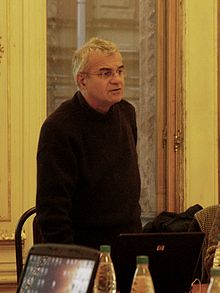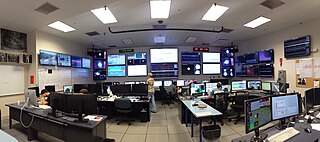
The Laser Interferometer Gravitational-Wave Observatory (LIGO) is a large-scale physics experiment and observatory designed to detect cosmic gravitational waves and to develop gravitational-wave observations as an astronomical tool. Two large observatories were built in the United States with the aim of detecting gravitational waves by laser interferometry. These observatories use mirrors spaced four kilometers apart which are capable of detecting a change of less than one ten-thousandth the charge diameter of a proton.

Science studies is an interdisciplinary research area that seeks to situate scientific expertise in broad social, historical, and philosophical contexts. It uses various methods to analyze the production, representation and reception of scientific knowledge and its epistemic and semiotic role.

The sociology of scientific knowledge (SSK) is the study of science as a social activity, especially dealing with "the social conditions and effects of science, and with the social structures and processes of scientific activity." The sociology of scientific ignorance (SSI) is complementary to the sociology of scientific knowledge. For comparison, the sociology of knowledge studies the impact of human knowledge and the prevailing ideas on societies and relations between knowledge and the social context within which it arises.
The science wars were a series of scholarly and public discussions in the 1990s over the social place of science in making authoritative claims about the world. HighBeam Encyclopedia, citing the Encyclopedia of Science and Religion, defines the science wars as the discussions about the "way the sciences are related to or incarnated in culture, history, and practice[...] [which] came to be called a 'war' in the mid 1990s because of a strong polarization over questions of legitimacy and authority. One side [...] is concerned with defending the authority of science as rooted in objective evidence and rational procedures. The other side argues that it is legitimate and fruitful to study the sciences as institutions and social-technical networks whose development is influenced by linguistics, economics, politics, and other factors surrounding formally rational procedures and isolated established facts."
David Bloor is a British sociologist. He is a professor in, and a former director of, the Science Studies Unit at the University of Edinburgh. He is a key figure in the Edinburgh school and played a major role in the development of the field of science and technology studies. He is best known for advocating the strong programme in the sociology of scientific knowledge, most notably in his book Knowledge and Social Imagery.
The strong programme or strong sociology is a variety of the sociology of scientific knowledge (SSK) particularly associated with David Bloor, Barry Barnes, Harry Collins, Donald A. MacKenzie, and John Henry. The strong programme's influence on science and technology studies is credited as being unparalleled. The largely Edinburgh-based school of thought has illustrated how the existence of a scientific community, bound together by allegiance to a shared paradigm, is a prerequisite for normal scientific activity.

Joseph Weber was an American physicist. He gave the earliest public lecture on the principles behind the laser and the maser and developed the first gravitational wave detectors.
Michel Callon is a professor of sociology at the École des mines de Paris and member of the Centre de sociologie de l'innovation. He is an author in the field of Science and Technology Studies and one of the leading proponents of actor–network theory (ANT) with Bruno Latour.
John Law, is a sociologist and science and technology studies scholar, currently on the Faculty of Social Sciences at the Open University. Law coined the term Actor-Network Theory (ANT) in 1992 when synthesising work done with colleagues at the Centre de Sociologie de l'Innovation.
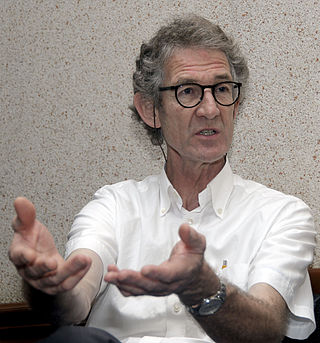
Wiebe E. Bijker is a Dutch professor Emeritus, former chair of the Department of Social Science and Technology at Maastricht University in the Netherlands.
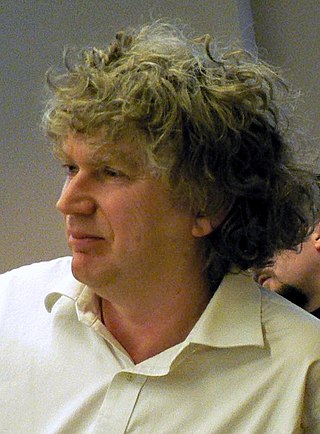
Trevor J. Pinch was a British sociologist, part-time musician and chair of the science and technology studies department at Cornell University. In 2018, he won the J.D. Bernal Prize from the Society for Social Studies of Science for "distinguished contributions to Science and Technology Studies over the course of [a] career."
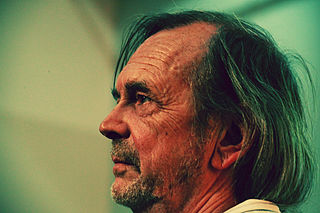
Andrew Pickering is a British sociologist, philosopher and historian of science at the University of Exeter. He was a professor of sociology and a director of science and technology studies at the University of Illinois at Urbana-Champaign until 2007. He holds a doctorate in physics from the University of London, and a doctorate in Science Studies from the University of Edinburgh. His book Constructing Quarks: A Sociological History of Particle Physics (1984) is a classic in the field of the sociology of science.

Stephen William Woolgar is a British sociologist. He has worked closely with Bruno Latour, with whom he wrote Laboratory Life: The Construction of Scientific Facts (1979).

The psychology of science is a branch of the studies of social science defined most simply as the study of scientific thought or behavior. It is a collection of studies of various topics. The thought of psychology has been around since the late 19th century. Research on the psychology of science began in 1874, the field has seen a substantial expansion of activity in recent years. The specific field of psychology as a science first gained popularity mostly in the 1960s, with Abraham Maslow publishing an influential text on the subject, but this popularity faded, only re-emerging in the 1980s. Other studies of science include philosophy of science, history of science, and sociology of science or sociology of scientific knowledge.
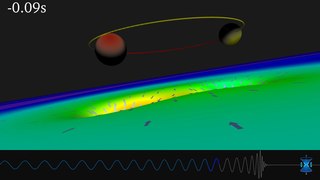
Gravitational waves are waves of the intensity of gravity that are generated by the accelerated masses of an orbital binary system, and propagate as waves outward from their source at the speed of light. They were first proposed by Oliver Heaviside in 1893 and then later by Henri Poincaré in 1905 as waves similar to electromagnetic waves but the gravitational equivalent.
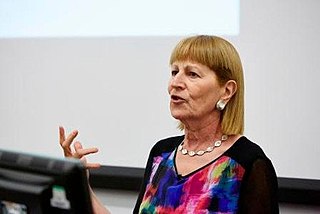
Judy Wajcman, is the Anthony Giddens Professor of Sociology at the London School of Economics and Political Science. She is the Principal Investigator of the Women in Data Science and AI project at The Alan Turing Institute. She is also a visiting professor at the Oxford Internet Institute. Her scholarly interests encompass the sociology of work, science and technology studies, gender theory, and organizational analysis. Her work has been translated into French, German, Greek, Italian, Korean, Japanese, Portuguese, Russian, Chinese and Spanish. Prior to joining the LSE in 2009, she was a Professor of Sociology in the Research School of Social Sciences at the Australian National University. She was the first woman to be appointed the Norman Laski Research Fellow (1978–80) at St. John's College, Cambridge. In 1997 she was elected Fellow of the Academy of the Social Sciences in Australia.
Michael Joseph Mulkay is a retired British sociologist of science.
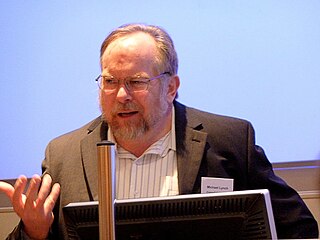
Michael E. Lynch, is an emeritus professor at the department of Science and Technology Studies at Cornell University. His works are particularly concerned with ethnomethodological approaches in science studies. Much of his research has addressed the role of visual representation in scientific practice.
Reiner Grundmann, is Professor of Science and Technology Studies (STS) at the University of Nottingham and Director of its interdisciplinary STS Research Priority Group. He is a German sociologist and political scientist who has resided in the UK since 1997. Previous appointments include Aston University and the Max Planck Institute for the Study of Societies.

The sociology of scientific ignorance (SSI) is the study of ignorance in and of science. The most common way is to see ignorance as something relevant, rather than simply lack of knowledge. There are two distinct areas in which SSI is being studied: some focus on ignorance in scientific research, whereas other focus on public ignorance of science. Sociology of scientific ignorance is a complementary field to the sociology of scientific knowledge (SSK).
